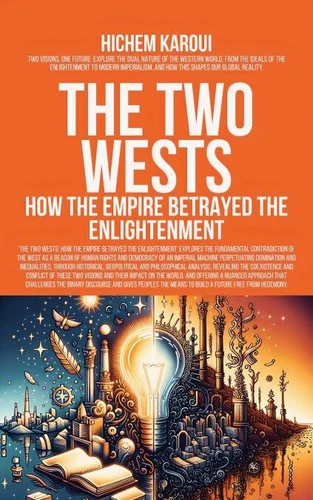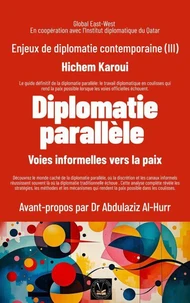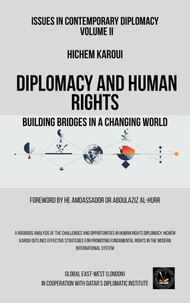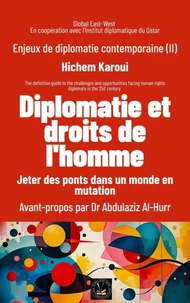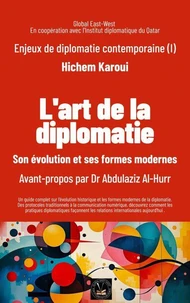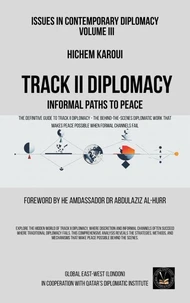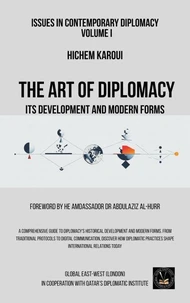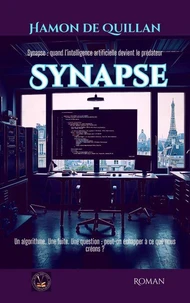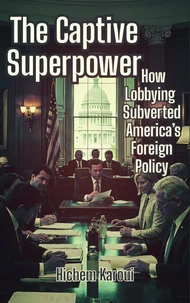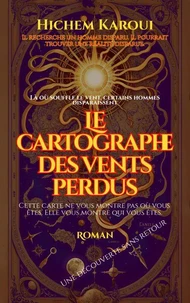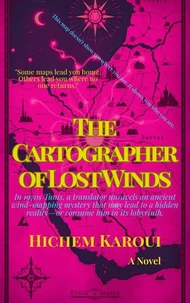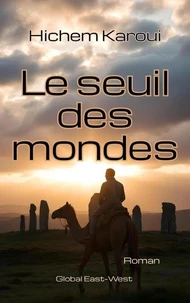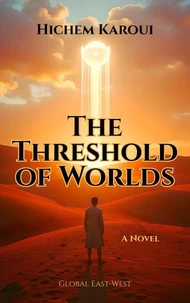The Two Wests: How The Empire Betrayed the Enlightenment. The Mediterranean Notebooks
Par :Formats :
Disponible dans votre compte client Decitre ou Furet du Nord dès validation de votre commande. Le format ePub protégé est :
- Compatible avec une lecture sur My Vivlio (smartphone, tablette, ordinateur)
- Compatible avec une lecture sur liseuses Vivlio
- Pour les liseuses autres que Vivlio, vous devez utiliser le logiciel Adobe Digital Edition. Non compatible avec la lecture sur les liseuses Kindle, Remarkable et Sony
- Non compatible avec un achat hors France métropolitaine
 , qui est-ce ?
, qui est-ce ?Notre partenaire de plateforme de lecture numérique où vous retrouverez l'ensemble de vos ebooks gratuitement
Pour en savoir plus sur nos ebooks, consultez notre aide en ligne ici
- FormatePub
- ISBN8231468294
- EAN9798231468294
- Date de parution26/07/2025
- Protection num.Adobe DRM
- Infos supplémentairesepub
- ÉditeurWalzone Press
Résumé
What if the West, which we often perceive as a united bloc, were actually deeply divided? The Two Wests: How the Empire Betrayed the Enlightenment takes readers on a fascinating intellectual journey, challenging the idea of a unified Western civilisation. Rather than offering a straightforward historical analysis, this book delves into the intricate forces that have moulded two divergent worldviews, each with its own cultural identity, economic strategy, and ideological foundation.
It delves into historical divisions, tracing the divergences between Western and Eastern Europe, which are marked by Greco-Roman legacies, Orthodoxy, and contrasting experiences of colonisation. It examines how major geopolitical confrontations, from world wars to the Cold War, have fragmented the West into rival spheres of influence. The analysis also covers the striking cultural contrasts and divergent economic strategies that continue to widen the gap between these two worlds.
Offering sharp insights into the most pressing contemporary challenges, from rising populism to the silent ideological struggles playing out on the world stage, this book invites you to reflect critically on the philosophical roots of our thinking, the tensions between science and faith, nationalism and universalism, and the need to reinvent a shared humanism in the face of the challenges of globalised capitalism.
It invites readers to critically reflect on the philosophical roots of their thinking and the tensions between science and faith, nationalism and universalism. In the face of the challenges of globalised capitalism, it emphasises the need to reinvent a shared humanism. The Two Wests is a call to action. Providing new insights into global issues, it encourages constructive dialogue aimed at overcoming antagonisms.
It is essential reading for anyone who wants to challenge simplistic perceptions and contribute to building a more just and harmonious future.
It delves into historical divisions, tracing the divergences between Western and Eastern Europe, which are marked by Greco-Roman legacies, Orthodoxy, and contrasting experiences of colonisation. It examines how major geopolitical confrontations, from world wars to the Cold War, have fragmented the West into rival spheres of influence. The analysis also covers the striking cultural contrasts and divergent economic strategies that continue to widen the gap between these two worlds.
Offering sharp insights into the most pressing contemporary challenges, from rising populism to the silent ideological struggles playing out on the world stage, this book invites you to reflect critically on the philosophical roots of our thinking, the tensions between science and faith, nationalism and universalism, and the need to reinvent a shared humanism in the face of the challenges of globalised capitalism.
It invites readers to critically reflect on the philosophical roots of their thinking and the tensions between science and faith, nationalism and universalism. In the face of the challenges of globalised capitalism, it emphasises the need to reinvent a shared humanism. The Two Wests is a call to action. Providing new insights into global issues, it encourages constructive dialogue aimed at overcoming antagonisms.
It is essential reading for anyone who wants to challenge simplistic perceptions and contribute to building a more just and harmonious future.
What if the West, which we often perceive as a united bloc, were actually deeply divided? The Two Wests: How the Empire Betrayed the Enlightenment takes readers on a fascinating intellectual journey, challenging the idea of a unified Western civilisation. Rather than offering a straightforward historical analysis, this book delves into the intricate forces that have moulded two divergent worldviews, each with its own cultural identity, economic strategy, and ideological foundation.
It delves into historical divisions, tracing the divergences between Western and Eastern Europe, which are marked by Greco-Roman legacies, Orthodoxy, and contrasting experiences of colonisation. It examines how major geopolitical confrontations, from world wars to the Cold War, have fragmented the West into rival spheres of influence. The analysis also covers the striking cultural contrasts and divergent economic strategies that continue to widen the gap between these two worlds.
Offering sharp insights into the most pressing contemporary challenges, from rising populism to the silent ideological struggles playing out on the world stage, this book invites you to reflect critically on the philosophical roots of our thinking, the tensions between science and faith, nationalism and universalism, and the need to reinvent a shared humanism in the face of the challenges of globalised capitalism.
It invites readers to critically reflect on the philosophical roots of their thinking and the tensions between science and faith, nationalism and universalism. In the face of the challenges of globalised capitalism, it emphasises the need to reinvent a shared humanism. The Two Wests is a call to action. Providing new insights into global issues, it encourages constructive dialogue aimed at overcoming antagonisms.
It is essential reading for anyone who wants to challenge simplistic perceptions and contribute to building a more just and harmonious future.
It delves into historical divisions, tracing the divergences between Western and Eastern Europe, which are marked by Greco-Roman legacies, Orthodoxy, and contrasting experiences of colonisation. It examines how major geopolitical confrontations, from world wars to the Cold War, have fragmented the West into rival spheres of influence. The analysis also covers the striking cultural contrasts and divergent economic strategies that continue to widen the gap between these two worlds.
Offering sharp insights into the most pressing contemporary challenges, from rising populism to the silent ideological struggles playing out on the world stage, this book invites you to reflect critically on the philosophical roots of our thinking, the tensions between science and faith, nationalism and universalism, and the need to reinvent a shared humanism in the face of the challenges of globalised capitalism.
It invites readers to critically reflect on the philosophical roots of their thinking and the tensions between science and faith, nationalism and universalism. In the face of the challenges of globalised capitalism, it emphasises the need to reinvent a shared humanism. The Two Wests is a call to action. Providing new insights into global issues, it encourages constructive dialogue aimed at overcoming antagonisms.
It is essential reading for anyone who wants to challenge simplistic perceptions and contribute to building a more just and harmonious future.

